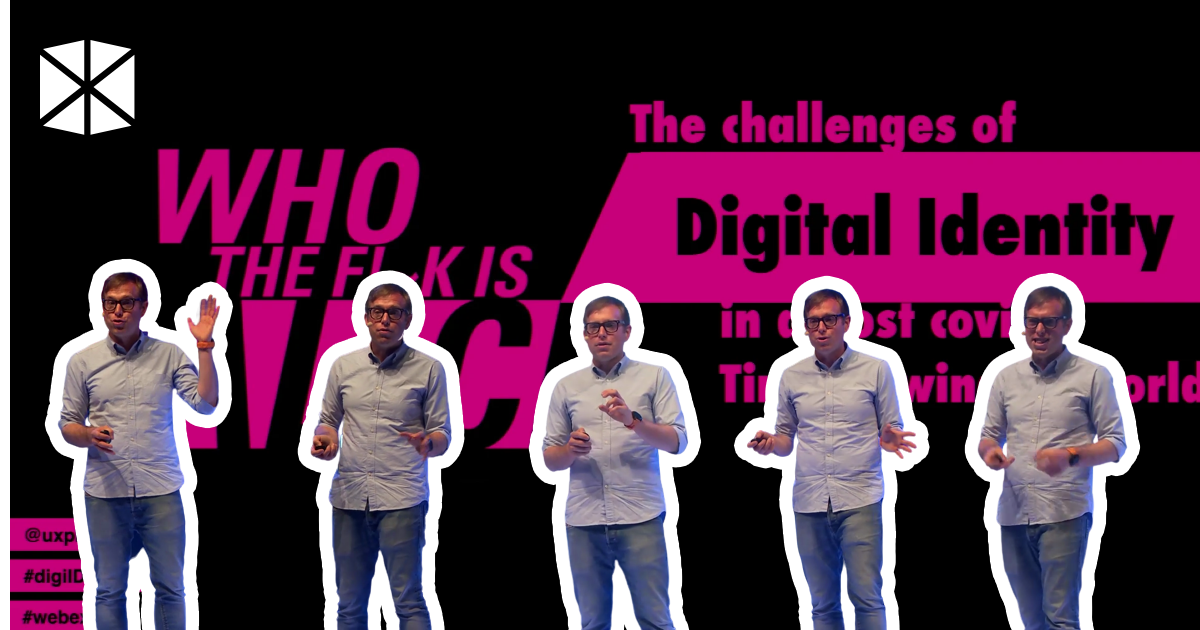
Philip Bonhard is Head of Customer Experience Design for Digital Fraud, Identity and Authentication at Lloyds Bank.
‘With digital identity in today’s world, it is ever more important to be able to trust each other’
As Head of Customer Experience Design for Digital Fraud, Identity and Authentication at Lloyds Bank, Philip Bonhard explains that in today’s world, it’s become even harder to know if the person you’re speaking to is telling the truth. This has come about in part due to the digital age we are living in where we are routinely ‘meeting’ people digitally and over the phone.
To begin we need to explore what actually is identity today, especially when we take into account how easy it is to lie.
If someone asks for your ID what do you give them?
Well, it’s very simple:
Passport – ID Card – Utility bill – Bankcard
If you are face-to-face with someone or something, this works, however, online it’s easy for us to have super split personalities.
Personal identity can be very different from our work identity. Our dating persona can be very different from a gaming profile and our social media account can send a very different message about us than the bio on our side hustle. The problem, Philip says, is that data can be abused, and this is where documentaries like the ‘Tinder swindler’ become so interesting to us.
As soon as a person is born, they start generating data and this data is split into four categories:
- Attributes – Attributes like height, weight, date of birth.
- Inherited – This could be things like nationality.
- Accumulated – Certain privileges such as being the age of 18 that can entitle you to drink alcohol
- Assigned – These are attributes such as national insurance number NHS number (a UK specific healthcare number) often given by governments or official bodies.
As well as individuals having this data, legal entities and assets also have them.
Once you begin the understand this, Philip says, it’s easy to begin to see how all of these metrics are connected and why we need to ensure the proper use of our data and authentification methods surrounding it.
‘We need to be able to start to control our data, because our data is valuable’
An entity can give reassurance to others that you are who you say you are, and from this we all get trust. The way businesses and individuals are doing this is increasingly becoming under scrutiny. For example, when an individual is asked for proof that they are over 18, the current system means showing your identification which includes not only what age you are, but your address, a personal identifying number etc. Where in reality the process needs to adapt to being able to simply show ‘this person is aged over 18’.
During the talk, Philip talks in depth about the fascinating way in which the process of being asked for ID for a drink at the bar can be transformed through the use of digital wallets and the importance of better understanding our security processes in terms of storing and having access to data.
Changes will soon be made to current security systems where Philip explains to the audience that there are some big changes up and coming within the digital world. One such piece of information is that;
‘By 2023 every EU country will need to have some sort of implementation of a digital wallet’
This should be a reassuring prospect for all of us.
Phillip summarises that the biggest take away point from what’s been discussed is trust. By businesses becoming up to date with ways that can employ better security such as two-factor authentication it means that businesses and individuals can begin to trust one another and in doing so be able to move through day-to-day transactions more easily and with increasing efficiency.
As the use of digitalised data and metrics increases, most people including Philip are excited at the prospect that individuals will be able to know where their data is going and how it is being used.
After digesting what is offered by Philip in this talk it’s clear that the process of identifying ourselves as people, entities and assets has some work to do, but there are some exciting changes in the pipeline that will affect every one of us, be it in our professional or personal lives.
Philip is adept at presenting this information and shows some great examples as part of his talk ‘Alice who the fck is Alice the challenges of digital identity in a post covid tinder swindler world? Which you can access below.

